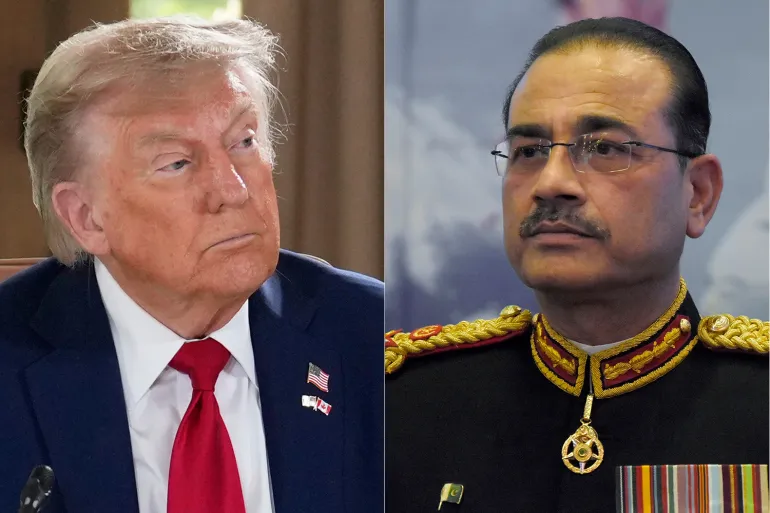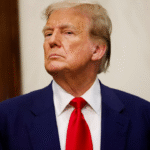In his first address to a joint session of Congress on March 4 this year, after becoming United States president for a second time, Donald Trump made a striking revelation.
He referred to the deadly Abbey Gate bombing at Kabul airport in August 2021 – which occurred as thousands of Afghans tried to flee following the Taliban takeover – and said the alleged perpetrator had been apprehended.
The country he credited with the arrest: Pakistan. “I want to thank especially the government of Pakistan for helping arrest this monster,” Trump declared.
A little more than three months later, Trump hosted Pakistan’s army chief Asim Munir for lunch at the White House on Wednesday — the first time a US president has hosted a military chief from Pakistan who isn’t also the country’s head of state. Munir is on a five-day trip to the US.
For a country that Trump had, just seven years earlier, accused of giving the US “nothing but lies and deceit” and safe havens to terrorists – and one that his immediate predecessor Joe Biden called “one of the most dangerous nations” – this marks a dramatic shift.
It’s a reset that experts say has been in the making for weeks, under Trump’s second administration, and that was solidified by the brief but intense military confrontation between India and Pakistan in May, during which the US tried to mediate a ceasefire.
Some analysts warn that the evolving relationship should be viewed as a product of Trump’s personal position, rather than institutional policy.
“We are dealing with an administration which changes its tune by the hour. There is no process here,” Marvin Weinbaum, a senior fellow at the Middle East Institute (MEI), .
“One minute the US has no interest, and the next minute priorities change rapidly. You’re dealing with an administration that is mercurial and personalised, and you don’t associate that with traditional US foreign policy,” he added.
However, others point out that even the optics of Trump hosting Munir are significant.
“Trump’s lunch invite to Pakistan’s army chief isn’t just protocol-breaking, it’s protocol-redefining,” said Raza Ahmad Rumi, a distinguished lecturer at the City University of New York (CUNY). “It signals, quite visibly, that Pakistan is not just on Washington’s radar, it’s in the inner circle, at least for now.”
The meeting between Trump and Munir came amid heightened tensions in the Middle East, where Israel has been conducting strikes inside Iranian cities since June 13. Iran has retaliated with missile attacks of its own on Israel.
The Israeli offensive – targeting Iranian generals, missile bases, nuclear facilities and scientists – has killed more than 200 people. Iran’s missile and drone attacks on Israel over the past six days have killed about 20 people.
The Benjamin Netanyahu-led Israeli government has been urging the US to join the offensive against Iran, which shares a 900-kilometre-long (559-mile) border with Pakistan.
Speaking to the media in the Oval Office after the lunch with Munir on Wednesday, Trump noted that the Pakistanis “know Iran very well, better than most,” but added that they are “not happy”.
According to Trump, however, the main reason for meeting Munir was to thank him for his role in defusing the May conflict between Pakistan and India, a confrontation that brought the region, home to more than 1.6 billion people, to the brink of nuclear war.
“The reason I had him here was that I wanted to thank him for not going into the war [with India]. And I want to thank PM [Narendra] Modi as well, who just left a few days ago. We’re working on a trade deal with India and Pakistan,” said Trump, who is known to enjoy a warm relationship with Indian leader Modi.
“These two very smart people decided not to keep going with a war that could have been a nuclear war. Pakistan and India are two big nuclear powers. I was honoured to meet him today,” he added, referring to Munir.
The crisis had begun after an April attack in Indian-administered Kashmir that killed 26 Indian civilians. India blamed Pakistan, which denied the charge and called for a “credible, independent, transparent” investigation.










